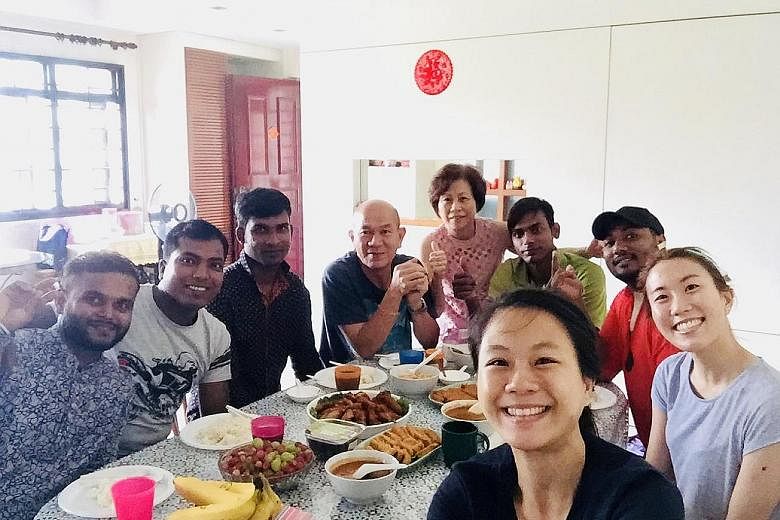There are almost a million unskilled and semi-skilled foreign workers in Singapore, and those from Bangladesh form a large percentage of the group.
Yet, other than occupying the same crowded MRT trains on Sundays or shopping in Little India, Singaporeans hardly cross paths with migrant workers who mostly live on worksites and dormitories away from residential estates.
The lack of interaction does little to help counter stereotypes of the community which tends to make the news only when laws have been broken.
But how much do we actually know about the lives and struggles of these foreign workers?
When property developer Lendlease approached CNA Insider in April last year for a collaboration to highlight the lives of foreign workers during Ramadan - a time for family and reflection - the team saw an opportunity to challenge public perceptions that are often biased because of a lack of insight.
Four men aged between 26 and 33 were introduced to CNA Insider. They came from different parts of Bangladesh but shared a similar narrative - working in Singapore was their ticket out of a tough life back home.

They were at first shy and reticent, and self-conscious of their poor grasp of English. It took CNA Insider journalists several rounds of chats over home-cooked meals at their Mandai dormitory to get them to drop their guard and open up.
One of them clearly stood out.
Mr Kadir Mohammad Abdul, 33, wore the taqiyah - a short, rounded skullcap - and kept a large beard. The CNA Insider journalists were won over by his infectious smile and optimistic outlook in life.
They were also drawn to his story of perseverance. Starting out as a general worker who was berated daily by his supervisor, he climbed his way up the ladder to become a construction safety supervisor highly valued by his employer.
The first part of the Ramadan Diaries series offered a glimpse into the daily lives of Mr Kadir and his colleagues during Ramadan - the hardships, sacrifices and the support that they received at work.
Part 2 focused on what Singaporeans could do to reach out to migrant workers.
It featured a husband and wife pair, Mr Fadzullah Hassan and Ms Siti Zawiyah, who invited Mr Kadir and friends - who had never been in a Housing Board flat - to their home. "We'd been breaking fast at the mosque with them, and we'd always wanted them at our house but we just didn't know how to approach them," she said.
Being invited to dinner with the family was a "heart pain" experience for Mr Kadir who, having spent six consecutive Ramadans away from his wife and three children, broke down crying.
To keep up the momentum, CNA Insider posed this question on Facebook: Would you invite migrant workers to your home for dinner?
More than 50 families - Muslims and non-Muslims - contacted the team to express interest in hosting foreign workers at their homes.
Eight families opened up their homes to migrant workers over two weekends.
One family prepared a special Bengali delicacy for their Bangladeshi guests.
Another, not content with just a home-cooked meal, gave their guests Hari Raya gifts and food to take back to their dormitory.
Mr Nicholas Yeo, who is not a Muslim, got a Muslim friend to whip up a home-cooked spread.
Another host, Ms Marlene Chua, said "it is like having friends over".
Ms Noraini Khodri-Siebley wrote that during Ramadan, she cooked an extra portion on weekends "for the Bangladeshi boy who cleans my block. He's just like my son".
CNA Insider supervising editor Yvonne Lim said: "The response to this series highlighted how good journalism has the power to challenge stereotypes and be a positive force."
• This story was originally published on Aug 22.

